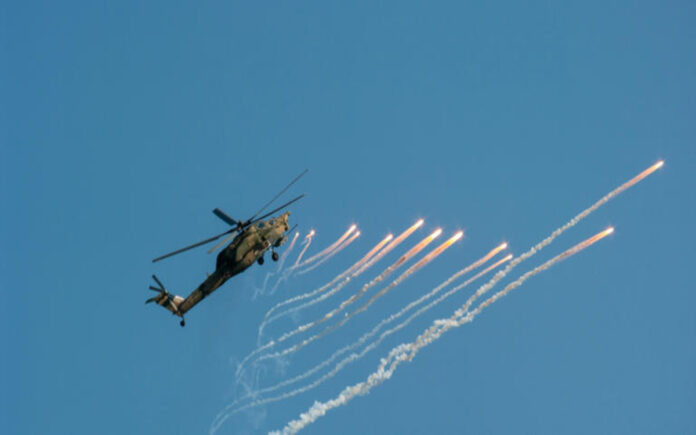Moscow: Helicopters have become indispensable in modern warfare, thanks to their versatility in missions ranging from close air support to reconnaissance. However, maintaining these sophisticated machines is a daunting task during prolonged conflicts, particularly when resources and skilled personnel are under strain.
The Telegram channel Fighterbomber, closely associated with Russia’s military aviation, recently reported the loss of yet another Mi-28N “Night Hunter” attack helicopter, resulting in the deaths of its two pilots. This incident marks the 16th verified loss of this advanced helicopter model in the ongoing conflict in Ukraine, highlighting the growing pressure on Russia’s aerial fleet.
At the outset of the war, Russia reportedly possessed around 100 Mi-28Ns in its arsenal, according to WP. However, operational readiness in such scenarios rarely reaches 100%, especially when challenges like spare parts shortages and reports of cannibalizing other aircraft for components arise. These issues have taken a toll on Russia’s fleet, reducing its combat effectiveness and amplifying the impact of each loss.
The Mi-28N: A Technological Marvel
Introduced into service in 2009, the Mi-28N is widely regarded as one of Russia’s most advanced attack helicopters, sharing the stage with models like the Ka-52 “Alligator” and the Mi-35. The Mi-28N features a tandem-seat design and a heavily armored cockpit, offering enhanced protection for its crew. Equipped with cutting-edge targeting systems, the helicopter was designed to compete with its Western counterpart, the U.S. AH-64 Apache.
The Night Hunter is armed with a 30mm 2A42 cannon and boasts the capability to carry an array of weapons on its pylons. These include guided missiles such as the 9M120 Ataka, with a range of 8 kilometers, and newer Kh-39 missiles, capable of striking targets up to 14.5 kilometers away. Its versatility allows it to engage armored vehicles, troops, and fortified positions with precision.
Also Read | NISAR Launch in March: How NASA and ISRO Are Changing Earth Observation Forever
Strategic Implications of the Loss
Despite its impressive capabilities, the loss of an Mi-28N, particularly one piloted by highly trained personnel, is a critical setback for Russia. Pilot training is a lengthy and resource-intensive process, and the depletion of experienced aviators exacerbates the challenges faced by Russia’s military in sustaining prolonged operations.
With each confirmed loss, the strain on Russia’s fleet becomes increasingly evident. This pattern raises questions about the long-term viability of its aerial combat capabilities amidst ongoing resource constraints.



